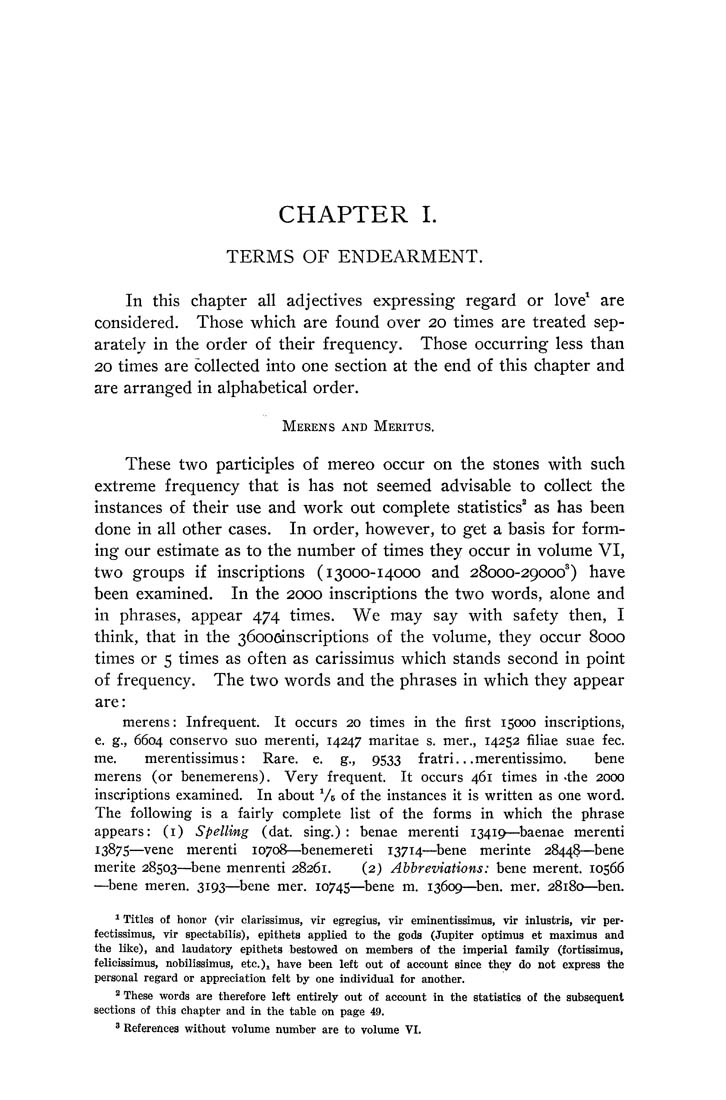CHAPTER I.
TERMS OF ENDEARMENT.
In this chapter all adjectives expressing regard or love^ are
considered. Those which are found over 20 times are treated sep¬
arately in the order of their frequency. Those occurring less than
20 times are collected into one section at the end of this chapter and
are arranged in alphabetical order.
Merens and Meritus.
These two participles of mereo occur on the stones with such
extreme frequency that is has not seemed advisable to collect the
instances of their use and work out complete statistics^ as has been
done in all other cases. In order, however, to get a basis for form¬
ing our estimate as to the number of times they occur in volume VI,
two groups if inscriptions (13000-14000 and 28000-29000^) have
been examined. In the 2000 inscriptions the two words, alone and
in phrases, appear 474 times. We may say with safety then, I
think, that in the 36oo6inscriptions of the volume, they occur 8000
times or 5 times as often as carissimus which stands second in point
of frequency. The two words and the phrases in which they appear
are:
merens: Infrequent. It occurs 20 times in the first 15000 inscriptions,
e. g., 6604 conservo suo merenti, 14247 maritae s. mer., 14252 filiae suae fee.
me. merentissimus: Rare. e. g., 9533 fratri... merentissimo. bene
merens (or benemerens). Very frequent. It occurs 461 times in »the 2000
inscriptions examined. In about Vs of the instances it is written as one word.
The following is a fairly complete list of the forms in which the phrase
appears: (i) Spelling (dat. sing.): benae merenti 13419—^baenae merenti
13875—^vene merenti 10708—^benemereti 13714—^bene merinte 28448—bene
merite 28503—^bene menrenti 28261. (2) Abbreviations: bene merent. 10566
—^bene meren. 3193—bene mer. 10745—^bene m. 13609—^ben. mer. 28180—ben.
^ Titles of honor (vir clarissimus, vir egregius, vir eminentissimus, vir inlustris, vir per-
fectissimus, vir spectabilis), epithets applied to the gods (Jupiter optimus et maximus and
the like), and laudatory epithets bestowed on members of the imperial family (fortissimus,
felicissimus, nobilissimus, etc.),. have been left out of account since they do not express the
personal regard or appreciation felt by one individual for another.
2 These words are therefore left entirely out of account in the statistics of the subsequent
sections of this chapter and in the table on page 49.
* References without volume number are to volume VI.
|








